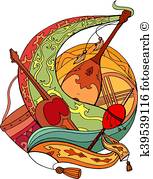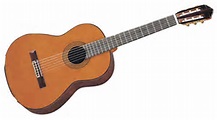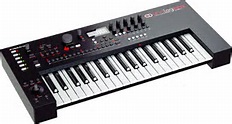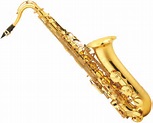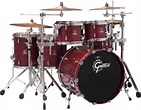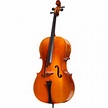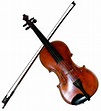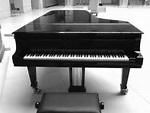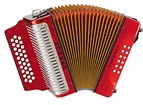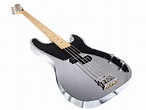
Lesson plan
|
Unit 5: Creativity |
School: |
|||||||
|
Date: |
Teacher name: |
|||||||
|
CLASS: 5 |
Number present: |
absent: |
||||||
|
Lesson title |
Music |
|||||||
|
Learning objectives(s) |
5. L6 Deduce meaning from context in short supported talk on an increasing range of general and curricular topics 5. S4 respond with limited flexibility at sentence level to unexpected comments on an increasing range of general and curricular topics 5.UE3 use a growing variety of adjectives and regular and irregular comparative and superlative adjectives on a limited range of familiar general and curricular topics |
|||||||
|
Lesson objectives |
All learners will be able to :
Most learners will be able to :
Some learners will be able to :
|
|||||||
|
Assessment criteria |
Detect meaning from context in short supported talk on an increasing range of curricular topics Communicate a point of view in sentences Apply the rule for different adjectives, including comparative and superlative adjectives
|
|||||||
|
Values links |
The Patriotic Act ‘‘Mangilik Yel’’6th of value: Common history, culture and language |
|||||||
|
Cross-curricular link |
Music , Art |
|||||||
|
Previous learning |
They have known this theme according to the text “Kazakh national instruments” in previous grades |
|||||||
|
Plan |
||||||||
|
Planned timings |
Planned activities (replace the notes below with your planned activities) |
Resources |
||||||
|
Start 7-min
|
Greeting. The teacher greets the learners and divide them by pictures into two groups ‘dombyra’ and ‘kobyz’
Check up homework: write one excess word Learning activity “Odd one out” Learners will recognize the words which don’t coincide to the theme art. f.e. Theatre cinema family Warming up: “Instrument sing” Student will listen to sounds of musical instruments and find what instrument it is and try to understand the theme of the lesson. |
pictures
worksheets |
||||||
|
Middle
|
Pre –listening task Key words and phrase: Check the vocabulary by strategy ”Key words” Write on the board any words not already covered that you think your students may not know .Give each group one or two words look up in their dictionary. Then have students explain the meaning of their words to the class. Help with understanding and give further examples where necessary. Classical rock jazz Disco pop folk While-listening task. Students watch a video about musical instruments. 1. Listen and match the types of music A-H to the musical instruments in the pictures. Make up sentences with musical instruments. A classical b rock c jazz d folk e heavy metal f disco g pop h ethnic 1 acoustic
guitar 2
synthesiser 4. harp
5 drums
6 cello
8 piano
10 .bass
guitar Now, children you will check your answer according this video. Video clip about music https://www.youtube.com/watch?v=wiF8YlKNx4g Descriptors : A learner - listens to the text carefully
Post – listening task. Activity “Raining questions” Differentiation by teacher support More able students answer the question individually. Less able students answer the question with teachers support by eliciting techniques
AFL : oral feedback Review Grammar Students show the video about adjectives
Differentiation by group ability More able student help to less able students during the group work. Activity “ Bank of Words ” Teacher gives two words with adjectives according to music. There is one adjective in the bank, so each team gives comparative and superlative adjectives to next group. For example: Famous – more famous – the most famous. Zhetigen is famous instrument. Kobyz is more famous than Zhetigen. Dombyra is the most famous instrument. Descriptors : A learner
AFL : Peer’s assessment 3. Make up sentences and compare the using the degrees of adjectives
AFL : Praising “ You are, you are super !” for winner group. Teacher encourages more able learners to help those students who need some help. |
Video clip about music https://www.youtube.com/watch?v=wiF8YlKNx4g
Interactive board
|
||||||
|
End 3 min |
Giving the home task: making up sentences + Feedback: ‘ Medal and Mission” This is one of the most well-known types of feedback refer to giving positive statements to the student so that they work with intrinsic motivation. These statements could include, for example ,praise about the good sentence structure, proper use of punctuations and a good use of factual date for a written assignment. This would keep the student encouraged to keep up the good work. However, the ‘Mission’ includes statements that would help him\her correct or improve the weaker areas of the work done by the student. These statements could include the idea of improvement in sentence structure and heavier use factual date in the same assignment.
|
Board |
||||||
|
Additional information |
||||||||
|
Differentiation – how do you plan to give more support? How do you plan to challenge the more able learners? |
Assessment – how are you planning to check learners’ learning? |
Health and safety check |
||||||
|
Differentiation by teacher support More able students answer the question individually. Less able students answer the question with teachers support by eliciting techniques Differentiation by group ability More able student help to less able students during the group work.
|
The teacher will use such oral forms of formative assessment As “Well done!”, “Good job!”, ”Good for you!”, “Praising of learners”.
Peer’s assessment through the strategy “The bank of words”.
|
Safety measurements when they use electronic devices https://www.youtube.com/watch?v=wiF8YlKNx4g |
||||||
|
Reflection
Were the lesson objectives/learning objectives realistic? Did all the learners achieve the lesson objectives/ learning objectives? If not, why? Did my planned differentiation work well? Did I stick to timings? What changes did I make from my plan and why?
|
Use the space below to reflect on your lesson. Answer the most relevant questions from the box on the left about your lesson. |
|||||||
|
|
||||||||
|
Summary evaluation
What two things went really well (consider both teaching and learning)?
1:
2:
What two things would have improved the lesson (consider both teaching and learning)?
1:
2:
What have I learned from this lesson about the class or individuals that will inform my next lesson?
|
||||||||
жүктеу мүмкіндігіне ие боласыз
Бұл материал сайт қолданушысы жариялаған. Материалдың ішінде жазылған барлық ақпаратқа жауапкершілікті жариялаған қолданушы жауап береді. Ұстаз тілегі тек ақпаратты таратуға қолдау көрсетеді. Егер материал сіздің авторлық құқығыңызды бұзған болса немесе басқа да себептермен сайттан өшіру керек деп ойласаңыз осында жазыңыз
Creativity.Music
Creativity.Music
Lesson plan
|
Unit 5: Creativity |
School: |
|||||||
|
Date: |
Teacher name: |
|||||||
|
CLASS: 5 |
Number present: |
absent: |
||||||
|
Lesson title |
Music |
|||||||
|
Learning objectives(s) |
5. L6 Deduce meaning from context in short supported talk on an increasing range of general and curricular topics 5. S4 respond with limited flexibility at sentence level to unexpected comments on an increasing range of general and curricular topics 5.UE3 use a growing variety of adjectives and regular and irregular comparative and superlative adjectives on a limited range of familiar general and curricular topics |
|||||||
|
Lesson objectives |
All learners will be able to :
Most learners will be able to :
Some learners will be able to :
|
|||||||
|
Assessment criteria |
Detect meaning from context in short supported talk on an increasing range of curricular topics Communicate a point of view in sentences Apply the rule for different adjectives, including comparative and superlative adjectives
|
|||||||
|
Values links |
The Patriotic Act ‘‘Mangilik Yel’’6th of value: Common history, culture and language |
|||||||
|
Cross-curricular link |
Music , Art |
|||||||
|
Previous learning |
They have known this theme according to the text “Kazakh national instruments” in previous grades |
|||||||
|
Plan |
||||||||
|
Planned timings |
Planned activities (replace the notes below with your planned activities) |
Resources |
||||||
|
Start 7-min
|
Greeting. The teacher greets the learners and divide them by pictures into two groups ‘dombyra’ and ‘kobyz’
Check up homework: write one excess word Learning activity “Odd one out” Learners will recognize the words which don’t coincide to the theme art. f.e. Theatre cinema family Warming up: “Instrument sing” Student will listen to sounds of musical instruments and find what instrument it is and try to understand the theme of the lesson. |
pictures
worksheets |
||||||
|
Middle
|
Pre –listening task Key words and phrase: Check the vocabulary by strategy ”Key words” Write on the board any words not already covered that you think your students may not know .Give each group one or two words look up in their dictionary. Then have students explain the meaning of their words to the class. Help with understanding and give further examples where necessary. Classical rock jazz Disco pop folk While-listening task. Students watch a video about musical instruments. 1. Listen and match the types of music A-H to the musical instruments in the pictures. Make up sentences with musical instruments. A classical b rock c jazz d folk e heavy metal f disco g pop h ethnic 1 acoustic
guitar 2
synthesiser 4. harp
5 drums
6 cello
8 piano
10 .bass
guitar Now, children you will check your answer according this video. Video clip about music https://www.youtube.com/watch?v=wiF8YlKNx4g Descriptors : A learner - listens to the text carefully
Post – listening task. Activity “Raining questions” Differentiation by teacher support More able students answer the question individually. Less able students answer the question with teachers support by eliciting techniques
AFL : oral feedback Review Grammar Students show the video about adjectives
Differentiation by group ability More able student help to less able students during the group work. Activity “ Bank of Words ” Teacher gives two words with adjectives according to music. There is one adjective in the bank, so each team gives comparative and superlative adjectives to next group. For example: Famous – more famous – the most famous. Zhetigen is famous instrument. Kobyz is more famous than Zhetigen. Dombyra is the most famous instrument. Descriptors : A learner
AFL : Peer’s assessment 3. Make up sentences and compare the using the degrees of adjectives
AFL : Praising “ You are, you are super !” for winner group. Teacher encourages more able learners to help those students who need some help. |
Video clip about music https://www.youtube.com/watch?v=wiF8YlKNx4g
Interactive board
|
||||||
|
End 3 min |
Giving the home task: making up sentences + Feedback: ‘ Medal and Mission” This is one of the most well-known types of feedback refer to giving positive statements to the student so that they work with intrinsic motivation. These statements could include, for example ,praise about the good sentence structure, proper use of punctuations and a good use of factual date for a written assignment. This would keep the student encouraged to keep up the good work. However, the ‘Mission’ includes statements that would help him\her correct or improve the weaker areas of the work done by the student. These statements could include the idea of improvement in sentence structure and heavier use factual date in the same assignment.
|
Board |
||||||
|
Additional information |
||||||||
|
Differentiation – how do you plan to give more support? How do you plan to challenge the more able learners? |
Assessment – how are you planning to check learners’ learning? |
Health and safety check |
||||||
|
Differentiation by teacher support More able students answer the question individually. Less able students answer the question with teachers support by eliciting techniques Differentiation by group ability More able student help to less able students during the group work.
|
The teacher will use such oral forms of formative assessment As “Well done!”, “Good job!”, ”Good for you!”, “Praising of learners”.
Peer’s assessment through the strategy “The bank of words”.
|
Safety measurements when they use electronic devices https://www.youtube.com/watch?v=wiF8YlKNx4g |
||||||
|
Reflection
Were the lesson objectives/learning objectives realistic? Did all the learners achieve the lesson objectives/ learning objectives? If not, why? Did my planned differentiation work well? Did I stick to timings? What changes did I make from my plan and why?
|
Use the space below to reflect on your lesson. Answer the most relevant questions from the box on the left about your lesson. |
|||||||
|
|
||||||||
|
Summary evaluation
What two things went really well (consider both teaching and learning)?
1:
2:
What two things would have improved the lesson (consider both teaching and learning)?
1:
2:
What have I learned from this lesson about the class or individuals that will inform my next lesson?
|
||||||||

шағым қалдыра аласыз


